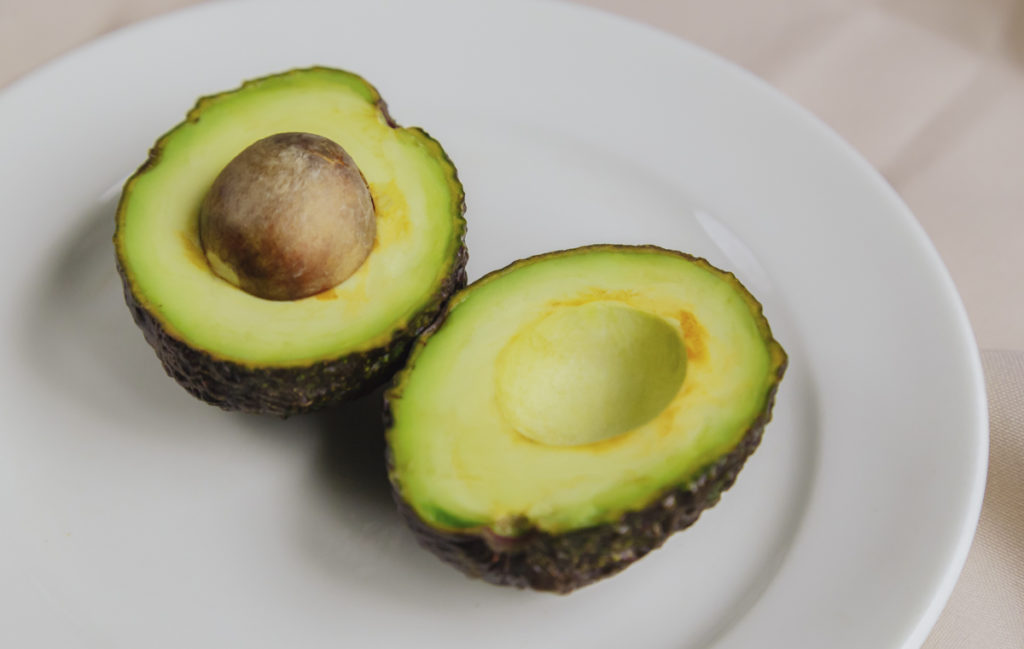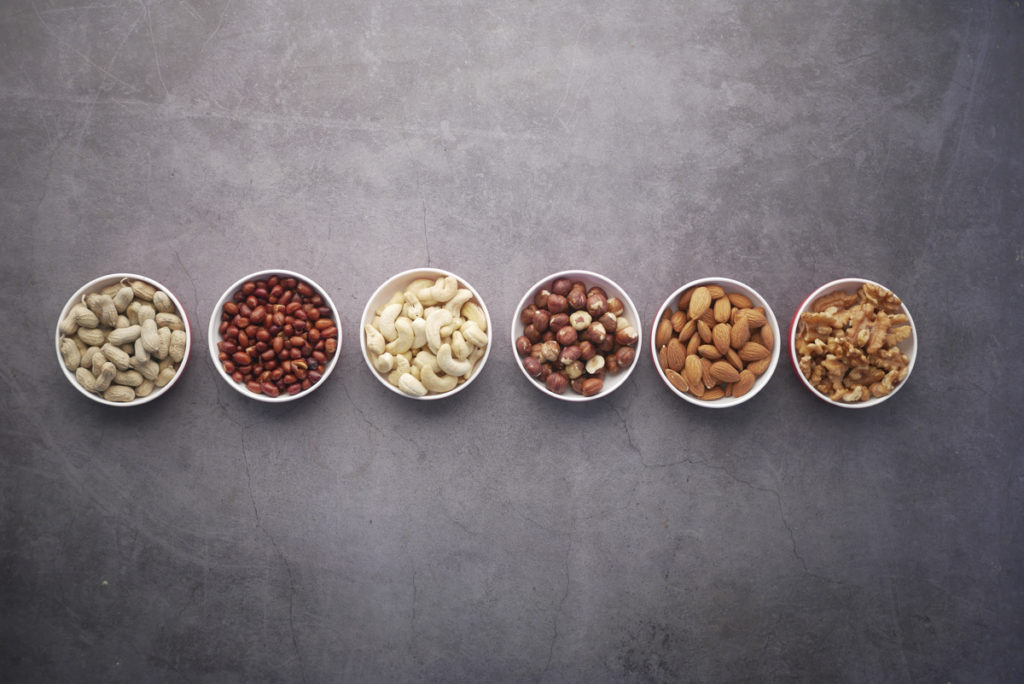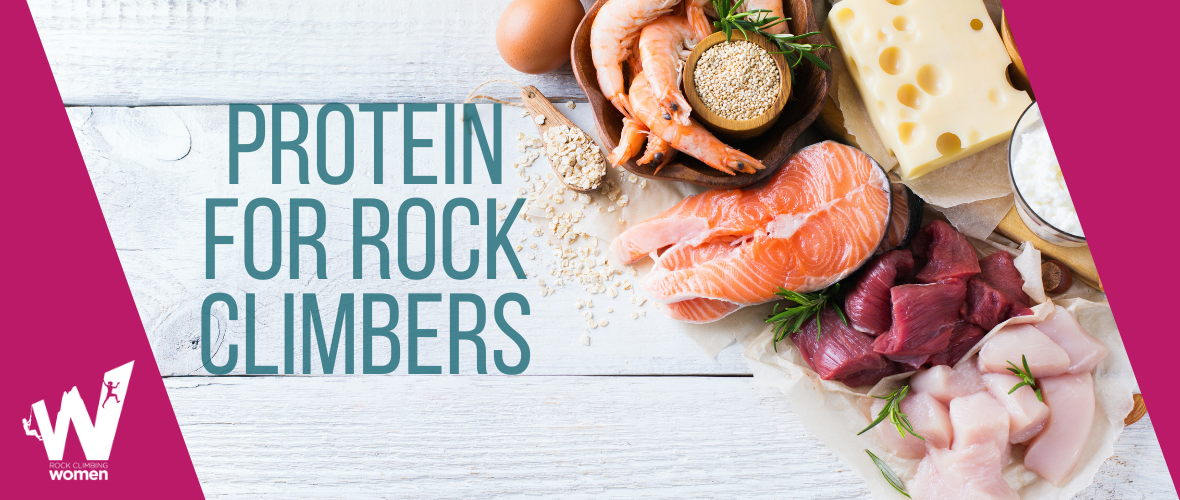For rock climbers, health is very important. Given that rock climbing is an intense physical activity done for hours, you have to make sure that your body is always in its best condition. This is not only for good performance but also to prevent injuries.
The best way to remain healthy and strong is to have the right diet. Doing this is especially important for female rock climbers since women’s muscles tend to be weaker than those of men. You need the required nutrients, such as protein for climbers, to support muscle strength and repair. At the same time, you need a good source of energy.

The Importance of Protein
Among the essential nutrients present in human cells, protein is one that the body does not store. It is either used or lost. Most, if not all, human body functions require protein.
If you take a closer look at protein, you will find out that it is actually made up of multiple amino acids. So when you lack necessary amino acids, this will disrupt some basic human body functions. Among the most important functions include:
- muscle repair and maintenance
- creation of hormones
- enzyme creation
- transportation and storage of other molecules
- creation of antibodies
Protein for climbers is essential as it also helps with the following:
- building of bones, collagen, and muscles
- delay muscle fatigue if taken with carbohydrates
- energy production
- injury recovery
Additionally, proper protein intake can also address plateauing.
Having a proper diet and exercise plan will help with weight loss. However, some people reach a point of plateauing. That means their weight stays the same despite exercising and changing their diet. One way of addressing this is by increasing protein intake to further boost your metabolic rate and stimulate the production of certain hormones that help reduce appetite.
Signs You are Not Getting Enough Protein
If you feel hungry or do not have enough energy while climbing, you are more prone to injuries or accidents. That is why you should be eating your meals well. Protein, for climbers, helps in feeling fuller for a longer time.
One way of determining if you are not getting enough protein is by feeling under-fueled easily. Other signs to look out for include the following:
- muscle tissue shrinkage
- loss of muscle tissue
- inability to build muscle
- change in body composition
- bloating in unusual parts
- fluid build-up, especially in the feet and ankles
- anemia
- brittle hair and nails
- impairment of cognitive thought process
- restless sleep
- feeling lazy or fatigued
- falling ill often
- feeling hungry most of the time
How Much Protein for Climbers
The daily protein intake requirement varies depending on the person. For sedentary people, having 0.8 grams per kilogram of their body weight is enough.
On the other hand, physically active individuals like female rock climbers should consume 1.2 to 2.0 grams of protein for every kilogram of their body weight. That is equivalent to 0.5 to 0.9 grams for every pound of your body weight.
Good Sources of Protein
To get essential amino acids, it is crucial to know the best way to consume protein. Here are some food sources that can contribute to protein intake:
- eggs
- dairy products (cheese, milk, yogurt)
- lean meat (beef, lamb, pork, veal)
- poultry (chicken, duck, emu, goose, turkey)
- fish and seafood
- nuts and seeds – (almonds, cashews, hazelnuts, macadamias, pine nuts, sesame seeds, sunflower seeds, walnuts)
- legumes and beans
- tofu

Supplemental Protein for Climbers
Aside from eating the right food, another way to consume protein is to take supplemental proteins.
You may be wondering if it is something you should take. The answer generally depends on whether you are active or not. For those with a sedentary lifestyle and who eat well-balanced meals every day, it may not be necessary.
But for those who do physical activities like rock climbing, consuming supplemental protein may be a good idea. In doing so, you can be sure that you are getting the essential amino acids that your body requires.
If you do not know where to start, consider common protein supplements made from:
- Whey
- Casein
- Collagen
- Soy
- Pea
- Brown Rice
- Egg
Best Time to Take Protein Supplements
Taking protein supplements does not require complicated preparations. You only mix the protein powder with water or any liquid of your choice. You may also buy ready-made protein shakes infused with supplements.
However, many are not sure when is the right time to take them.
If your main goal is to build muscles, it may be best to take the supplement about 15 to 60 minutes after your activity.
Meanwhile, those who want to prevent muscle loss should spread their protein intake across the day. You can do this by taking 25 to 30 grams of protein per meal.
For better performance, easier recovery, and reduction of muscle soreness, you may want to consume protein with carbohydrates during and after your activity.
Protein is essential, especially for those with an active lifestyle. As a climber, you need to know how much, when, how to take protein.
Do you want to know more tips to up your rock climbing game?
Stay updated! Be among the first to get notified. Sign up for our newsletter below!
McKenzi Taylor founded Rock Climbing Women in 2013 after moving to a new city as a new climber seeking more climbing partners (and new friends!). Since her first taste of climbing in Spearfish Canyon, SD, McKenzi has been at the rock face seeking and sharing the thrill of climbing. She credits the support of a consistent climbing partner and community as the motivation to continue developing her skill, whether it’s trad, sport climbing or bouldering. A full-time business owner and mother, McKenzi’s on a mission to get her kids outside and learning to adventure alongside her.

